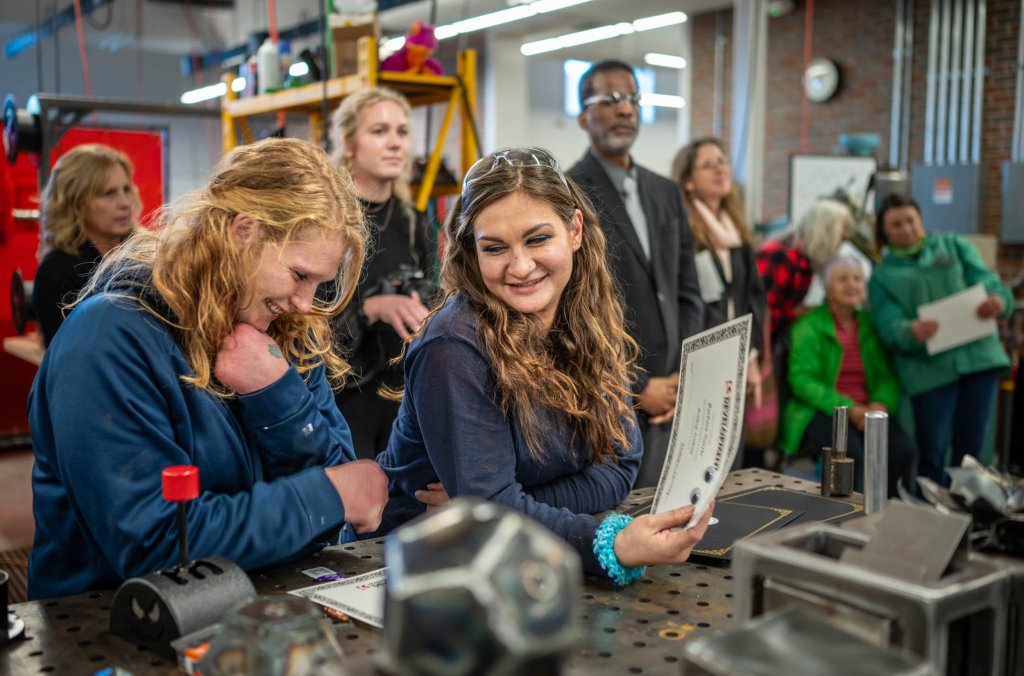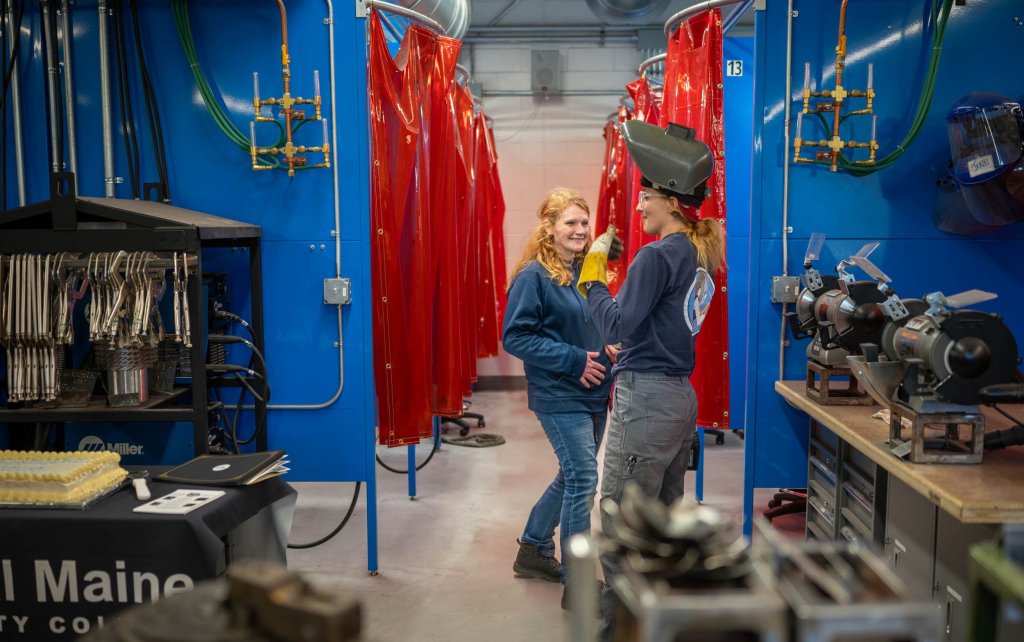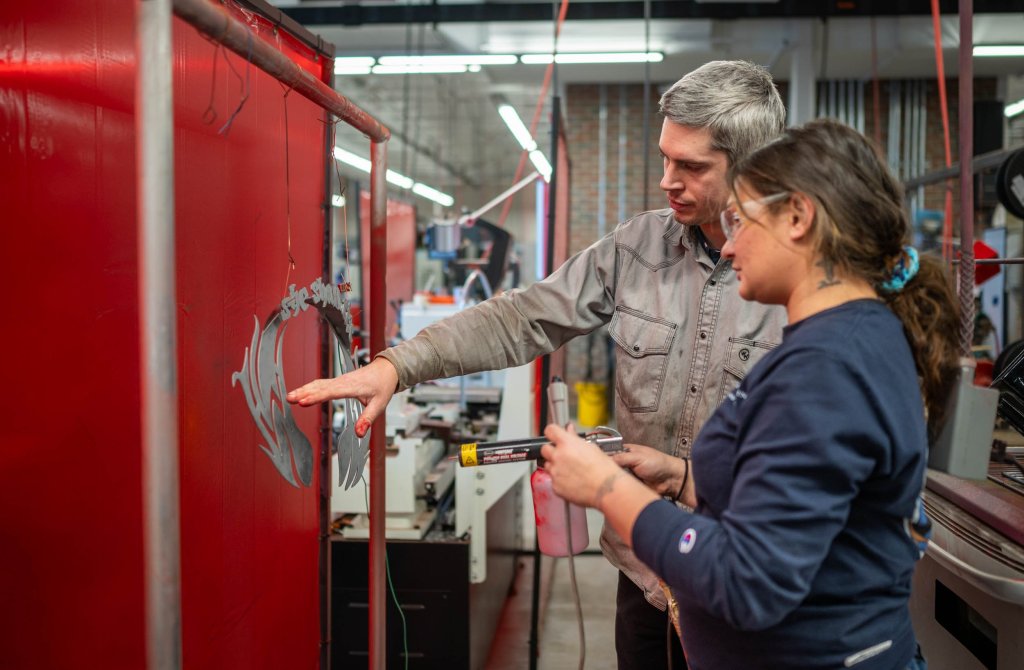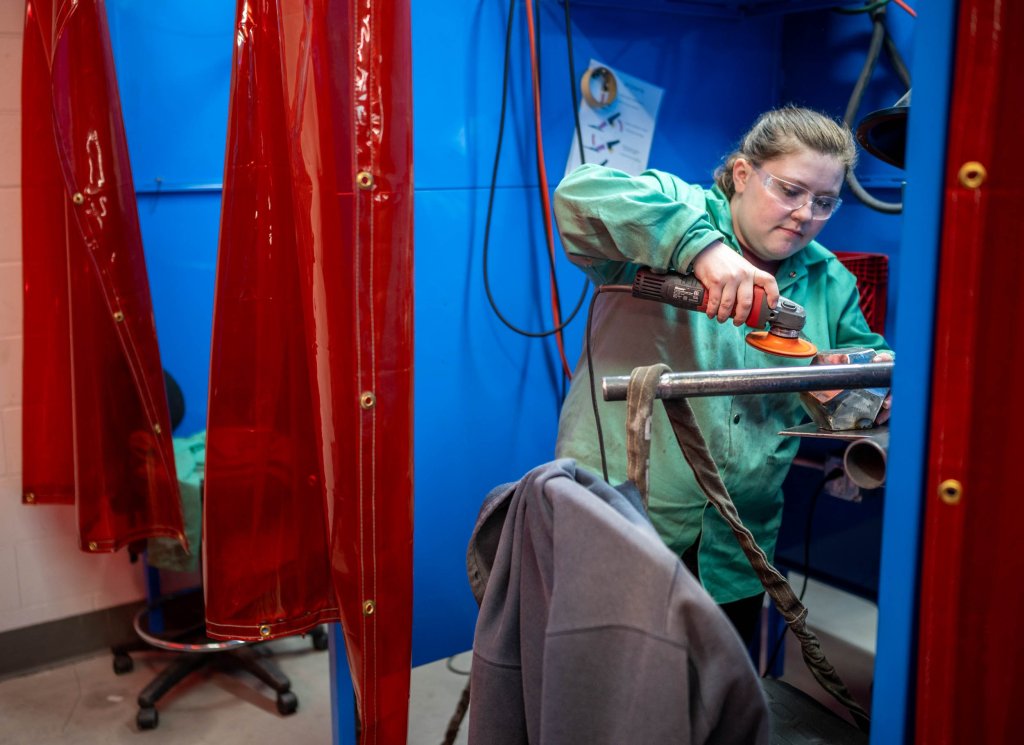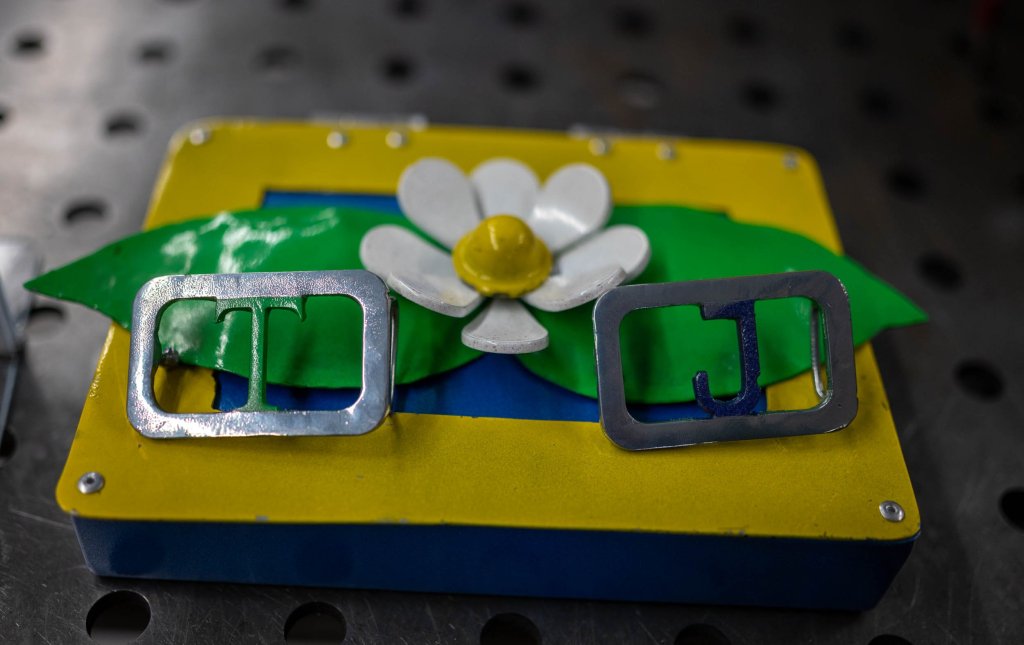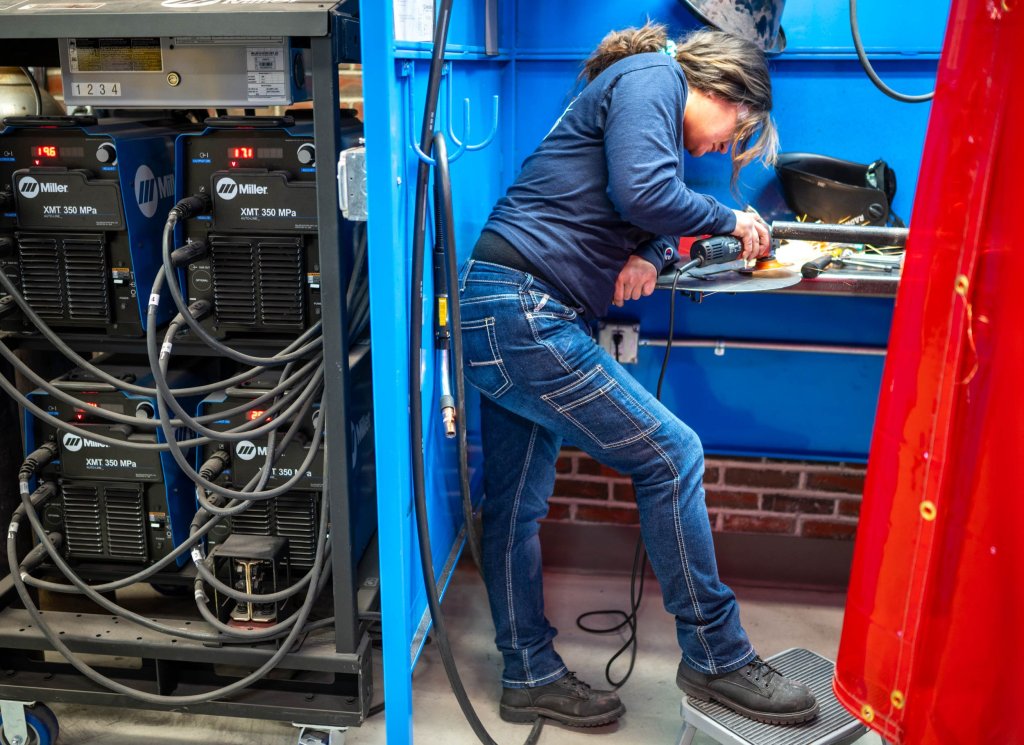AUBURN — Nine women from the Southern Maine Women’s Reentry Center in Windham graduated from the welding program at Central Maine Community College this week, the second graduating class this year.The program is part of a collaboration between CMCC and the Maine Department of Corrections, adding valued skills training as part of the facility’s prerelease program.
The first class of eight women graduated in March, and instructor Forrest Stone said two have since been released and have found union welding jobs earning between $27 and $32 per hour. He said one of the students sought additional training and is rebuilding her life.
Graduates completed 160 hours of hands-on training in metal inert gas and tungsten inert gas welding, also called MIG and TIG, respectively. The four-week program usually includes visits from people in industry and employers who hire welders. This class got a surprise visit from a previous graduate to share her experiences since finishing the training.

Brittany Roseberry, left, and Barbara Norrie celebrate their successful completion of a welding course Wednesday at Central Maine Community College in Auburn. They are among nine women from the Southern Maine Women’s Reentry Center in Windham who graduated Wednesday. Andree Kehn/Sun Journal
Stone said the women represent the “best class of the year,” with their projects getting progressively more complicated and intricate. He said they are very motivated, with some of them just weeks away from release.
Faith Walsh said the class was the first thing she started and completed. Her plans are to further her education and training and “move up in the welding field.”
Another graduate is staying in the trade and has an internship starting at the end of the month.
Corrine Bailey, vocational trades instructor of the Maine Department of Corrections, has previously shared that those in the program have not always been afforded opportunities to advance, adding that they want to work and change their lives.

Barbara Norrie reviews the process of powder coating Wednesday with instructor Forrest Stone before her graduation from a welding course at Central Maine Community College in Auburn. Norrie is one of nine women from the Southern Maine Women’s Reentry Center in Windham who graduated from the course Wednesday. Andree Kehn/Sun Journal
“The women that participated in the welding class had to give up opportunities to work and earn money in order to go,” Bailey said. “That was a huge sacrifice for them, since housing is so expensive and they are required to pay rent just like anyone else.”
The Southern Maine Women’s Reentry Center is the state’s only female reentry center. Residents qualify when they have five years or less remaining on their sentence and are classified as minimum security. They can work in the community during their incarceration.
The additional job skills and training allow them to prepare for a new career.
New welding classes are held every five weeks and students leave with skills, transferrable college credits and digital and paper certificates as documentation of their successful training.
Send questions/comments to the editors.



